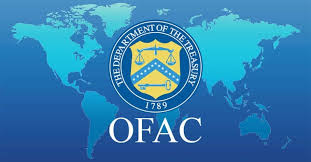What is OFAC 50 Percent Rule?
The OFAC 50 Percent Rule is a rule established by the U.S. Office of Foreign Assets Control (OFAC) that states that any organization or company in which 50% or more of the shares are owned by one or more persons on the Specially Designated Nationals (SDN) list is automatically subject to sanctions. This means that any interaction with such organizations is prohibited without obtaining the appropriate OFAC authorization.
What is OFAC?
OFAC (Office of Foreign Assets Control) — is the Office of Foreign Assets Control, which is part of the US Department of the Treasury. The organization is responsible for implementing and monitoring economic and trade sanctions against foreign countries, terrorist groups, and individuals or organizations that pose a threat to U.S. national security.

How Does the 50 Percent Rule Work?
OFAC 50 Percent Rule works as follows: if one or more individuals or entities from the Specially Designated Nationals (SDN) list own 50% or more of a company's shares in aggregate, that company is automatically subject to sanctions, even if it is not included in the SDN list itself.
The main principles of this rule are as follows:
- Direct ownership: If a sanctioned person owns 50% or more of a company's shares, the company is considered controlled and sanctioned.
- Joint ownership: If multiple SDNs hold stakes that collectively amount to 50% or more, the company is also subject to sanctions.
- Automatic application: Sanctions are imposed without additional notifications or separate decisions from OFAC.
This rule ensures that sanctions restrictions apply not only to specific individuals or entities, but also to their economic assets.
Why is the 50 Percent Rule Important?
OFAC's 50% rule is important for ensuring the effectiveness of sanctions policy. It helps to avoid cases where sanctions restrictions are circumvented through the creation of subsidiaries or complex controlled structures. This rule ensures transparency and control by identifying companies that are actually controlled by sanctioned persons, even if they are not formally listed on the SDN. It also prevents the circumvention of sanctions by making it impossible to disguise ownership and use of complex corporate schemes. In addition, the rule protects the international financial system by ensuring that threat actors do not have access to financial resources internationally.

Examples of the 50 Percent Rule in Practice
OFAC's 50% rule is often applied in real-life situations to identify companies that are subject to sanctions. Let's look at a few examples of its practical application:
- Direct ownership: If a person on the SDN list owns 50% of the shares of company A, this company is automatically considered a sanctioned entity, even if it is not on the list itself.
- Joint ownership: Let's imagine that two SDNs own 30% and 25% of Company B, respectively. This makes a total of 55%, which exceeds the 50% threshold. Company B is therefore automatically subject to sanctions.
- Secondary structures: If company “C”, controlled by SDNs, owns 50% of another company “D”, then the sanctions automatically apply to company “D”.
Compliance Challenges and Risks
Compliance with OFAC's 50% rule can be challenging for companies. It requires constant monitoring and verification of counterparty data.
Main challenges:
- Difficulty in identifying owners: Some companies intentionally hide their shareholders. This makes it difficult to determine who controls 50% or more of the shares.
- Dynamic sanctions lists: SDN lists are updated frequently. Companies should keep up with the changes to avoid cooperation with sanctioned entities.
- Risk of errors: Incorrect assessment of ownership can lead to violations of the rules and large fines.
How to Ensure Compliance with the 50 Percent Rule
To comply with the 50% rule from OFAC, it is necessary to regularly check counterparties against special databases. This allows you to find out whether they are on the SDN list. It is also important to analyze the ownership structure of the companies with which you plan to cooperate to determine whether SDNs own 50% or more of the shares. Employees should be trained on OFAC requirements and the principles of compliance with the 50% rule. The use of modern automated systems for monitoring sanctions lists significantly reduces the risk of errors and facilitates compliance. These measures will help to avoid violations and preserve the company's reputation.
Legal Advice
We help people effectively fight their offenders back and successfully defend their own stand!